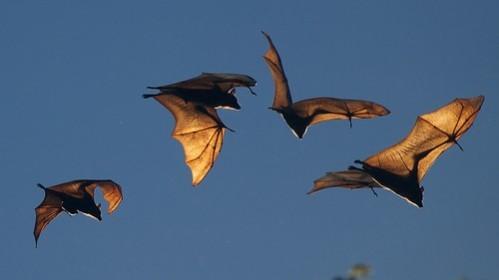In a crucial development, the researchers at the Indian Council of Medical Research (ICMR) have found pathogenic coronaviruses in two species of Indian bats – Pteropus (Indian flying foxes) and Rousettus (fruit bats). The samples that have tested positive for these coronaviruses were collected from Kerala, Tamil Nadu, Himachal Pradesh, and Puducherry.

Bats carry several kinds of viruses like Rabies, Hendra, Nipah and Ebola, which can harm humans. Also, the SARS-CoV-2 coronavirus, which causes COVID-19 disease is also said to have spread to humans from bats. However, there is no concrete proof yet to prove the novel coronavirus spread to humans from bats via an intermediary species.
ICMR-NIV Pune joint study
The research on the bat coronaviruses was jointly carried out by ICMR and a team of scientists from the National Institute of Virology (NIV), Pune and the findings of the study titled "Detection of coronaviruses in Pteropus and Rousettus species of bats from different states of India" were published in the Indian Journal of Medical Research.
"Bats are considered to be the natural reservoir for many viruses, of which some are potential human pathogens. In India, an association of Pteropus medius bats with the Nipah virus was reported in the past. It is suspected that the recently emerged severe acute respiratory syndrome coronavirus 2 (SARS-CoV-2) also has its association with bats," the study said.
The joint team of ICMR-NIV had collected rectal and nasal swab samples of these bats between 2018 and 2019 from the forests of Kerala, Karnataka, Tamil Nadu, Himachal Pradesh, Punjab, Gujarat, Odisha, Telangana, Chandigarh and Puducherry.
As per the ICMR-NIV study, a total of 508 samples of Indian Flying Fox bats and 78 samples of Rousettus bats were collected. Of them, four Rousettus samples and 21 Indian Flying Fox samples tested positive for BtCoV. This is a crucial study that can be used to determine the risk of future pandemics due to bat viruses.

















